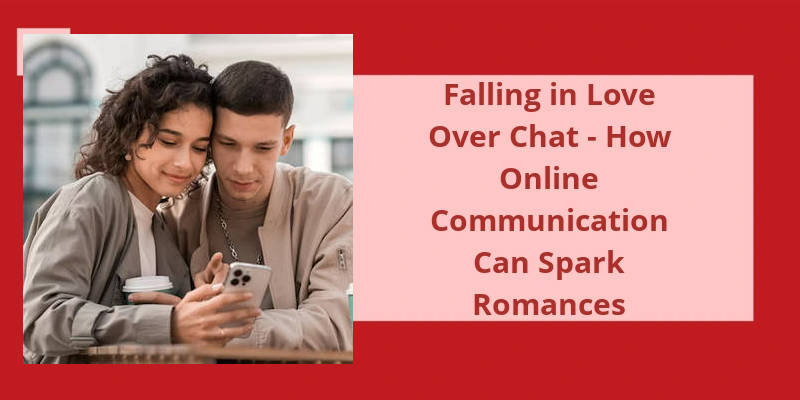Can You Like Someone Without A Reason – In Less Than 6 Minutes | Blog Article. Human emotions are complex and often defy explanation. One such feeling is the inexplicable liking towards someone without any apparent reason. It's a phenomenon that’s intrigued philosophers, psychologists, and romantics alike. Is it possible to develop an affinity for someone without a clear reason? Can we truly connect with another individual in less than 6 minutes, forming a bond that goes beyond rational understanding? To explore this enigmatic realm of human connection, we delve into the intricacies of human nature. Often, our liking or disliking towards someone is influenced by external factors such as physical appearance, shared interests, or common experiences. However, there are instances when we find ourselves drawn to someone without any logical explanation. It could be an instantaneous spark, an unspoken chemistry, or an intuitive understanding that defies rationality. This unexplained liking can unfold in under 6 minutes, as fleeting encounters have the power to leave a lasting impact. It might be a chance meeting on a crowded street, a brief conversation at a social gathering, or even a passing glance across a room. These fleeting moments can ignite a sense of curiosity and fascination, leading to a liking that surpasses any rational reasoning. In such instances, the heart seems to connect with an unseen force, yearning for a deeper connection with the other person. The absence of a tangible reason for liking someone can also be attributed to the intricacies of human nature and the depths of our subconscious minds. Our brains are wired to recognize patterns and make quick assessments based on past experiences. However, there are times when these ingrained mechanisms fail to provide an explanation for our emotions. It's in these instances that we find ourselves captivated by the mystique of an unexplained liking. Moreover, the nature of human connections extends beyond the realm of logic and reason. We’re inherently emotional beings, capable of forming deep bonds that transcend surface-level interactions. It's in these moments of vulnerability and raw authenticity that true connections are formed. We might not be able to pinpoint a specific reason for our liking, but we can feel it in our core. It's a gut feeling, an intuition, that tells us there’s something special about the other person. When two souls align, even in the briefest of encounters, a profound connection can be forged. Sometimes, it's in the absence of reasons that the magic of human connections truly unfolds. So, embrace the serendipity and allow yourself to be captivated by the mysteries of liking someone without a clear explanation.
Is It Bad to Love Someone Without a Reason?
We might be drawn to their personality, their energy, or even their physical appearance. Love can be a completely irrational and unexplainable feeling, and it doesn’t always require a concrete reason.
In fact, love without reason can be quite beautiful and magical. It allows us to fully embrace the unknown and surrender to the intensity of emotions. It transcends logic and reasoning, and instead, forms a deep bond that can’t be easily explained or understood.
Loving someone without a reason can also be liberating. It frees us from the pressure of having to justify or analyze our feelings. We can simply enjoy the experience of loving and being loved without trying to dissect or explain it. It allows us to fully embrace the present moment and cherish the connection we’ve with that person.
Loving someone without a reason isn’t bad at all. It’s a testament to the beauty and complexity of human emotions. It may not always make sense, but it can be deeply fulfilling and life-changing. So, if you find yourself falling for someone without an obvious reason, embrace it and allow yourself to experience the wonder and joy of love in all it’s mysterious forms.
The Scientific and Psychological Basis of Love Without Reason
Love without reason, also known as unconditional love, is a phenomenon that’s been studied scientifically and psychologically. It’s generally considered to be a deep emotional connection that exists between individuals without any specific justification or rational explanation.
From a scientific perspective, the feeling of love without reason can be attributed to various factors. The release of certain brain chemicals such as dopamine, oxytocin, and serotonin play a significant role in creating the intense feelings associated with love. These chemicals activate the reward centers in the brain and contribute to the overall pleasure and attachment experienced in a relationship.
Psychologically, love without reason can be related to unconscious desires, past experiences, and personal values. It’s believed that individuals may be drawn to certain qualities or traits in others based on their own unfulfilled needs or unresolved emotional issues.
Furthermore, the concept of love without reason challenges the idea that love is solely based on external factors or measurable attributes. It emphasizes the importance of a deep emotional connection and an innate understanding between individuals, rather than logical justifications or compatibility criteria.
In conclusion, love without reason is a complex and fascinating aspect of human relationships that can be explored through scientific and psychological perspectives. It demonstrates that love can transcend rationality and be based on deep emotional connections, making it a unique and powerful experience.
However, the intensity of emotions and connection developed in such a short span of time can be strong and captivating. It’s important to acknowledge that love takes time to truly blossom and deepen. Nevertheless, these initial feelings of attraction and infatuation can pave the way for a potential love story, but only time will tell if it truly stands the test of time.
Can You Fall in Love Within 5 Days?
Love is a complex and multifaceted emotion that often takes time to develop. While it’s possible to feel a strong connection and attraction to someone after only 5 days, it may be more accurate to describe it as infatuation rather than love. Love typically requires a deeper understanding of a persons character, values, and compatibility.
However, every individual and relationship is unique, and there are instances where people claim to have fallen in love within a short period of time. These intense feelings can be fueled by a variety of factors such as chemistry, shared experiences, and the vulnerability of being in a new and exciting situation.
Instead of focusing on the timeframe, it’s more valuable to pay attention to the quality of the connection and the growth of the relationship. Taking the time to get to know each other on a deeper level, sharing experiences and building emotional intimacy can help determine if what youre feeling is genuine love or a temporary infatuation.
It’s important to approach relationships with patience, open-mindedness, and a willingness to invest in building a strong foundation before declaring it as true love.
How Shared Experiences Can Influence Feelings of Love
- Going on adventures together
- Traveling to new places
- Getting to know each other’s families and friends
- Supporting each other through difficult times
- Creating special memories
- Trying new activities or hobbies together
- Having deep conversations about life and dreams
- Sharing laughter and humor
- Experiencing moments of vulnerability and trust
- Building a strong emotional connection
Source: How does a person fall in love after only 5 days of knowing …
Can Someone Like You and Not Realize It?
Can someone like you and not realize it? Yes, it’s possible to like someone without knowing it for sure. Sometimes, our emotions can be confusing and complex, especially when it comes to matters of the heart. It’s possible that you might have developed feelings for someone without even realizing it consciously. This can happen when you spend a significant amount of time with a person and have a deep connection or bond that goes beyond friendship.
Often, these feelings may arise when the person falls outside of what we think is “the right kind of person.”. It could be someone who doesn’t fit our usual criteria or expectations. Perhaps they’ve a different background, personality, or interests that you never considered before. However, when you start experiencing emotions such as happiness, excitement, or even jealousy when they’re around, it might be a sign that you like them more than you initially thought.
Furthermore, it’s essential to consider that liking someone doesn’t necessarily mean you’re romantically attracted to them. It could be a genuine admiration or respect for their qualities, achievements, or values. Sometimes, it takes time for these feelings to become obvious and for you to fully comprehend them.
In addition, it’s worth mentioning that the other person might also be unaware of their feelings towards you. They may not recognize the signs or might be suppressing their emotions due to various reasons. It could be fear of rejection, uncertainty, or simply not understanding their own emotions fully.
Emotions can be complex, and sometimes it takes time for us to understand and acknowledge them fully. It’s essential to be patient with yourself and the other person, allowing the natural progression of feelings to unfold. Only then will you be able to explore and determine the true nature of your connection.
How to Recognize and Understand Your Own Feelings Towards Someone
- Pay attention to physiological cues, such as a racing heart or uneasy stomach.
- Reflect on your thoughts and emotions when you’re around that person.
- Consider if you feel happy, excited, or nervous in their presence.
- Analyze if you find yourself thinking about them frequently or daydreaming about a future together.
- Notice if you feel a sense of comfort and ease when talking and spending time with them.
- Be aware of any jealousy or possessiveness that arises when they interact with others.
- Observe if you prioritize their well-being and happiness.
- Evaluate if you genuinely care about their opinions, interests, and successes.
- Take note of any shifts in your mood or emotions when they aren’t around.
- Trust your instincts and listen to the intuitive feelings that arise within you.
Our innate ability to form judgments and preferences enables us to navigate the complexities of social interactions. However, it raises a poignant question: do we always need a concrete reason to dislike someone? The truth is, our perceptions and energies can clash with certain individuals for inexplicable reasons, leading to an immediate aversion. While some may argue for the importance of understanding the source of our dislikes, it’s crucial to acknowledge that personal preferences, even in relation to people, exist independent of rational explanations.
Do You Have to Have a Reason Not to Like Someone?
Sometimes, you simply have a gut feeling about someone that makes you not gravitate towards them. It might be an instinctive reaction you cant explain, but it lingers nonetheless. The truth is, we’re complex beings, and not all personalities mesh seamlessly. Certain individuals may rub you the wrong way, even without any identifiable justification. It’s a matter of chemistry, or perhaps lack thereof.
It’s essential to remember that human connections are multifaceted. While we may understand the basis of our attraction or fondness, the absence of these reasons doesn’t automatically entail disliking someone. It’s entirely possible to feel indifferent towards an individual, without it being rooted in any concrete rationale. It’s merely a neutral state where no significant impression has been made.
However, it’s crucial to approach this topic with caution. Jumping to conclusions or forming negative judgments about someone without knowing them well enough can be unfair and harmful. Just because you don’t have a concrete reason to like someone doesn’t mean you’ve a reason to dislike them either. It’s always worthwhile to give people the benefit of the doubt and explore further before passing any judgment.
Personal preferences play a significant role in our relationships with others. It’s natural and healthy to have different inclinations and preferences when it comes to the people we associate with. It’s a part of human nature to be drawn towards certain individuals while maintaining a certain distance from others. Embracing this diversity and understanding that not everyone will be compatible allows us to cultivate authentic and meaningful connections with those who align with our energies and values, further enhancing our personal growth and happiness.
While liking someone is often mistaken for love, the truth is that it’s merely an infatuation that can develop instantly. Liking someone means enjoying their companionship and feeling a sense of belonging, but it isn’t a deep and lasting emotion that love entails. Unlike liking, love has the capacity to endure a lifetime, making it a far more profound and meaningful connection.
Does Liking Someone Mean Love?
Liking someone without a reason seems to be a common occurrence that puzzles many. It’s that inexplicable connection that forms instantly, making you drawn to a person without any logical explanation. This instant fondness can be seen as an infatuation, a temporary state of emotion that arises from some shared interests or compatibility. It’s the initial spark that attracts you towards someones company, making you feel a sense of belonging.
However, it’s important to note that liking someone doesn’t equate to being in love with them. Love takes time to develop and is built on a deeper emotional connection that goes beyond surface level attractions. Love is an enduring feeling that withstands the test of time, while liking someone might fade away after a short period.
It can be their personality traits, their sense of humor, or even their presence that makes us feel comfortable. This liking might be an instinctive response to something within them that resonates with us, creating a sense of familiarity and fondness.
It’s important to differentiate this liking from love, as mistaking one for the other can lead to misunderstandings and unmet expectations. Love requires a deep emotional connection, trust, and a willingness to commit. It involves a genuine care for the other persons well-being and a desire to support them through thick and thin.
Conclusion
In a world where human emotions often defy logic and reason, it’s entirely possible to like someone without a discernible or tangible reason. Attraction and affinity are complex and multifaceted, often transcending the confines of rationality. In less than six minutes, one may find themselves drawn to another person, captivated by their personality, charm, or unique aura. It’s in these fleeting moments that connections are formed, and bonds are forged. As elusive and enigmatic as this phenomenon may be, it reinforces the remarkable power of human connection and the depths of our emotions. So, can you like someone without a reason? Absolutely, for the heart knows no bounds and the mind merely tries to make sense of the inexplicable.






